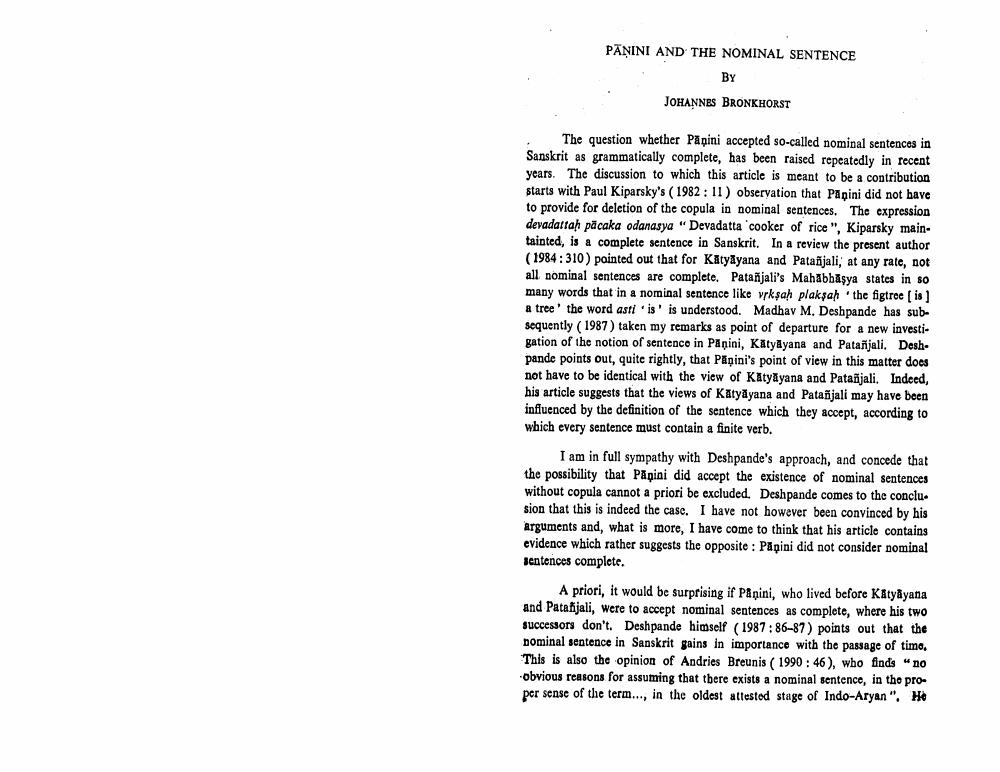Book Title: Panini And Nominal Sentence Author(s): Johannes Bronkhorst Publisher: Johannes Bronkhorst View full book textPage 1
________________ PĀŅINI AND THE NOMINAL SENTENCE BY JOHANNES BRONKHORST The question whether Papini accepted so-called nominal sentences in Sanskrit as grammatically complete, has been raised repeatedly in recent years. The discussion to which this article is meant to be a contribution starts with Paul Kiparsky's (1982: 11) observation that Papini did not have to provide for deletion of the copula in nominal sentences. The expression devadattah pacaka odanasya " Devadatta cooker of rice ", Kiparsky maintainted, is a complete sentence in Sanskrit. In a review the present author (1984: 310) pointed out that for Katyāyana and Patañjali, at any rate, not all nominal sentences are complete. Patañjali's Mahabbaşya states in so many words that in a nominal sentence like yrksah plaksah 'the figtrec [is] a tree' the word asti 'is' is understood. Madhav M. Deshpande has subsequently (1987) taken my remarks as point of departure for a new investigation of the notion of sentence in Panini, Katyayana and Patanjali. Deshpande points out, quite rightly, that Plņini's point of view in this matter doos not have to be identical with the view of Katyāyana and Patañjali. Indeed, his article suggests that the views of Katyayana and Patañjali may have been influenced by the definition of the sentence which they accept, according to which every sentence must contain a finite verb. I am in full sympathy with Deshpande's approach, and concede that the possibility that Papini did accept the existence of nominal sentences without copula cannot a priori be excluded. Deshpande comes to the conclu. sion that this is indeed the case. I have not however been convinced by his arguments and, what is more, I have come to think that his article contains evidence which rather suggests the opposite : Papini did not consider nominal sentences complete. A priori, it would be surprising if Piņini, who lived before Katyayana and Patajali, were to accept nominal sentences as complete, where his two successors don't. Deshpande himself (1987: 86-87) points out that the nominal sentence in Sanskrit gains in importance with the passage of timo. This is also the opinion of Andries Breunis ( 1990 : 46), who finds "no obvious reasons for assuming that there exists a nominal sentence, in the proper sense of the term..., in the oldest attested stage of Indo-Aryan". HePage Navigation
1 2 3
